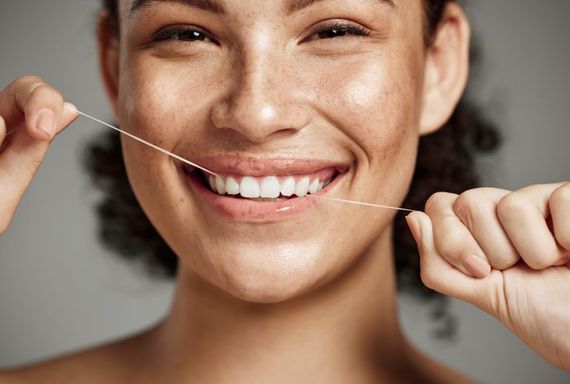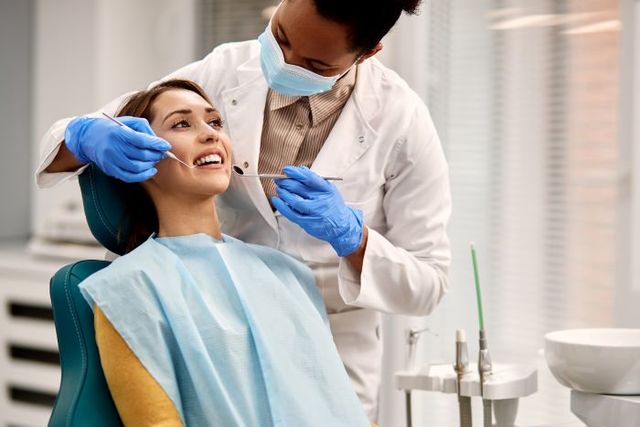Discussions of post-pregnancy health care often overlook the crucial aspect of dental health. Nonetheless, dental care after pregnancy is a pivotal part of overall wellness due to the hormonal changes that significantly affect oral health both during and after pregnancy.
Elevated progesterone and estrogen levels during pregnancy can amplify how gum tissues react to plaque, thereby increasing the risk of oral health problems. Additionally, the augmented blood flow and acidity in the mouth during pregnancy can instigate a variety of dental issues, including pregnancy gingivitis and tooth erosion.
This underlines the importance of dental health during this significant life phase. This article delves into key strategies for maintaining optimal dental health post-pregnancy.
Consider Treatment Options
In the wake of the hormonal tide receding post-birth, it's crucial for new mothers to schedule a comprehensive dental check-up. This will help identify any dental issues that might have cropped up during pregnancy. Remember that early detection is key to effective treatment, whether it's cavities, gum disease, or even tooth loss.
For example, options for dental implants can be explored when dealing with tooth loss. Dental implants are a long-term solution that enhances aesthetic appearance and contributes to overall oral health by preventing bone loss. However, the suitability for dental implants depends on an individual's general and oral health. Hence, it's best discussed with a dental health professional.
Lastly, address any concerns or fears about dental procedures with your dentist. Modern dentistry offers various sedation options to make procedures comfortable and fear-free. Remember, delaying necessary dental treatments can lead to more serious complications.
Prioritize Oral Hygiene
Maintaining a rigorous oral hygiene routine is paramount for post-pregnancy dental health. This involves brushing twice daily and flossing and using a mouth rinse to kill bacteria and freshen the breath.
In the post-pregnancy period, hormones are still in flux, which can leave your gums more susceptible to plaque. Hence, a meticulous cleaning routine is essential to prevent gum disease and tooth decay. Investing in an electric toothbrush that can often provide more thorough cleaning than manual brushing might be worthwhile.
Moreover, understand that oral health is linked with overall health. Poor oral hygiene can lead to infections that can affect the rest of the body. Hence, it's crucial to maintain a daily oral hygiene routine to keep both the mother and baby healthy.
Choose The Right Food
Proper nutrition plays a pivotal role in maintaining dental health post-pregnancy. A diet rich in calcium, vitamin D, vitamin C, and phosphorous can significantly strengthen your teeth and keep your gums healthy.
Foods like dairy products, leafy greens, and fortified cereals are high in calcium, which is essential for strong teeth. Vitamin C, found in citrus fruits, broccoli, and peppers, aids gum health. Foods rich in phosphorus, such as eggs, fish, and beans, can help rebuild and maintain tooth enamel.
On the contrary, try to limit sugary and acidic foods as they contribute to tooth decay and erosion. Always remember your diet directly impacts your dental health; hence choosing the right foods post-pregnancy can be immensely beneficial for maintaining optimal oral health.

Hydrate Regularly
Drinking plenty of water is another important factor for maintaining dental health after pregnancy. Hydration helps maintain the health of your oral cavity by stimulating saliva production, which is the mouth's primary defense against tooth decay.
Saliva serves a critical role in oral health by clearing the mouth of food particles and other detritus, counteracting the acids produced by oral bacteria, and distributing substances that combat diseases throughout the oral cavity. Hydrating with water, particularly when it's fluoridated, is an excellent choice for dental health, as it is the beverage least likely to harm teeth.
It's essential to be mindful of the impact of other drinks such as coffee, tea, and fizzy beverages, as these can contribute to the deterioration of teeth and enamel because of their high sugar content or acidic properties.
Avoid Smoking And Alcohol
Tobacco use in any form—smoking or chewing—is detrimental to oral health. It stains teeth, leads to gum disease, and increases the risk of oral cancer. In the post-pregnancy phase, it's crucial to quit tobacco for the sake of overall dental health.
Likewise, alcohol can have harmful effects on dental health. It dries out the mouth, reducing saliva production, which can lead to an increased risk of cavities and gum disease. Moreover, alcohol can erode the enamel, making teeth more susceptible to decay.
While it's hard to quit these habits, remember that it's not just about your health anymore but also about the health of your newborn. Quitting smoking and reducing alcohol consumption is beneficial not just for your dental health but also for your family's overall well-being.
Dental care after pregnancy involves a comprehensive approach, including regular dental check-ups, maintaining diligent oral hygiene, eating a nutrient-rich diet, staying hydrated, and avoiding harmful habits like smoking and excessive alcohol. While the post-pregnancy phase is certainly demanding, ensuring proper dental care during this period is vital for both the mother and child's overall health and well-being.






